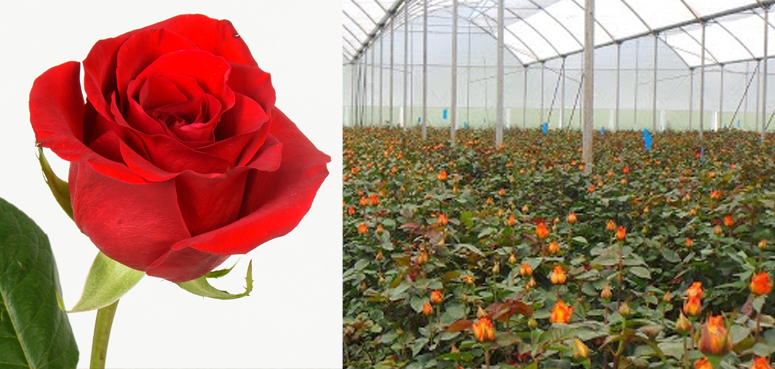
Kenya … wet but not all gloom
A statement issued to Interflora members on Febraury 6th caused some concern. We made some calls to find out more.
Whilst the statement issued to Interflora members did clearly state Kenyan grown Freedom roses may be at risk of Botrytis, some florists were concerned this would also apply to other varieties. That is not the case according to one of the biggest wholesale suppliers to the UK market.
Freedom is more prone to Botrytis and needs to be treated carefully, especially if weather conditions are poor – exactly the position the two Kenyan growers of Freedom has found themselves in.
However other varieties – like Red Eagle and Rhodos - are fine which is why wholesalers have withdrawn Kenyan Freedom from their offering, replacing it with other varieties; either Freedom sourced from South America where conditions are good, or, at their own expense, more expensive varieties grown in Holland.
Because what has also happened in Kenya is some seriously bad rainfall which has dramatically impacted on production levels; some estimates saying they are in the region of 40% down. Whilst Ethiopia production has not been impacted they haven’t sufficient crops to fill all the gaps.
To add to the problem South American growers experienced higher than normal temperatures in January which means their production peaked too early and some wholesalers were seeing their orders cancelled from there because there simply weren’t enough blooms!
As a result, and as reported on Floradaily.com yesterday, there was a world shortage of roses and Dutch growers were seeing a spike in their prices of around 10% - which could go higher if buyers can’t fulfil orders, especially in the supermarket sector.
We emailed Flamingo, the biggest supermarket packer for their take on it and they report no issues and are still waiting to hear back from the Kenyan Flower Council. However we would say if you are worried talk to your wholesaler but from what we have learned it is a problem relating to a couple of Kenyan Farms and not more widespread. If you know anything different please email us at






